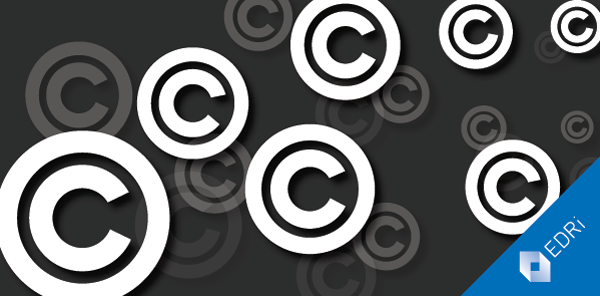Copyright reform: State of play
In 2016, the European Commission (EC) launched its proposal for a new Directive on Copyright in the Digital Single Market. This reform was supposed to update the previous Directive, to adapt it to the digital world.
Since the previous Directive was adopted in 2001 (after a four-year legislative process), technology and the online ecosystem have changed considerably, so an update was needed. However, far from modernising existing rules, the proposed Directive appears to be designed to create new barriers to fundamental rights, access to culture and the digital single market. The two most controversial issues that have arisen in the proposed text are Articles 11 and 13.
Article 11 proposes to establish an ancillary right for press publishers, in line with failed legislation in Spain and Germany. This is ostensibly to help redirect revenue to press publishers by creating a new right for publishers to restrict the use of news snippets. The Spanish and German examples showed the failures of this system that led to the end of Google News in Spain, to the detriment of smaller publishers, and to Google being exempted in practice from the obligations established by the German law, to the detriment of smaller news aggregators. Despite these failures and despite many academics warning against it, many legislators appear willing to ignore experience and hope that the same policy that was an abject failure and hurt publishers in Spain and gave a competitive advantage to Google in Germany will lead to different outcomes when implemented on an EU level.
Article 13 is supposed to address a so-called “value gap” (a lobbying term created by copyright lobbyists and generously re-used by the European Commission) by forcing online platforms to use upload filters on all content to check for copyrighted content. This would mean that each platform allowing uploads would have to monitor all material made available by their users. This would involve multiple filters for text, audio, audiovisual, image and other formats. Worse still, as these filters are not very effective, providers would have to guess how much filtering would be enough to defend themselves if they are taken to court. This would create huge uncertainty for European companies and yet another competitive advantage for the biggest platforms.
Not only this would be extremely costly and detrimental to smaller companies and start-ups, but it also contradicts the e-Commerce Directive. As upload filters would rely on algorithms and content recognition, we can be certain that they would infringe freedom of expression by taking down content that has been wrongly flagged or that is perfectly legal, as it falls under the entirely lawful exceptions to copyright, such as parody.
Other issues are text and data mining for scientific purposes (TDM), restricted to research institutions in the Commission’s proposal, and the harmonisation of exceptions such as the exception of panorama. Ironically and incomprehensibly, the existing Directive, introduced as a harmonisation measure, gives Member States literally millions of options to choose between.
After heated discussions, the European Parliament has yet to reach an agreement. The vote in the lead Committee, the Committee on Legal Affairs (JURI), is currently scheduled to take place on 25 January 2018, if compromise agreements are found on the main issues before then. This seems unlikely.

In the Council of the European Union, some Member States questioned the legality of the Article 13 with regard to the e-Commerce Directive and previous case law forbidding the untargeted filtering of uploads. After an unclear response from the legal service of the Council, the Estonian presidency only managed to find an agreement on the smaller issues like TDM but could only produce disastrous proposal after disastrous proposal on the most controversial elements elsewhere in the Directive. These proposals aim at bypassing the conflict with the e-Commerce Directive by establishing that online platforms are making an act of communication to the public, or “online content sharing service provider” (OCSSP), thus being directly liable for the content they host. It is now up to the Bulgarian presidency to work out a common position on the major issues.
After the 2001 Directive aimed to align outdated copyright law with the digital age, the new Directive appears to have a new aim – to align the digital age to outdated copyright law.
Copyright reform: Document pool
https://edri.org/copyright-reform-document-pool/
Censorship machine: Busting the myths (13.12.2017)
https://edri.org/censorship-machine-busting-myths/
Copyright Directive may lead newspapers to become their own censors (13.12.2017)
https://edri.org/copyright-directive-newspapers-become-their-own-censors/
Commission to scientists: Stop ruining our copyright plans with your facts and your research! (22.12.2017)
https://juliareda.eu/2017/12/jrc-paper-copyright/
(Contribution by Anne-Morgane Devriendt, EDRi intern)


